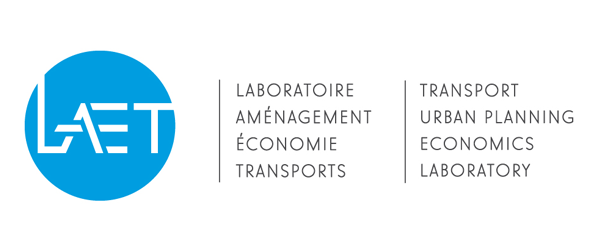Our project consortium brings together leading academics and practitioners from across the Energy, Social Sciences and Humanities (energy-SSH) research field. We draw upon our considerable expertise to overcome the difficulties of promoting interdisciplinary and cross-sector working, and to reach out to new parts of Europe by creating an inclusive, dynamic and open platform.
We cover a wide range of disciplines: Business, Communication Studies, Development, Economics, Education, Environmental Social Science, Gender, History, Human Geography, Law, Philosophy, Planning, Politics, Psychology, Science and Technology Studies, Sociology, Social Anthropology, Social Policy, and Theology.
The SHAPE ENERGY consortium includes:
Anglia Ruskin University (ARU), UK
The lead department from ARU involved in this project is the Global Sustainability Institute (GSI).
The GSI was established by ARU in 2011 and has built a reputation for high impact publications across a broad range of sustainability issues. It is focused on the development of practical solutions to sustainability-related challenges, through the delivery of rigorous academic research. The GSI is part of the £6m ESRC Centre for Understanding Sustainable Prosperity, has won grants from five of the UK research councils, is currently co-ordinating three EU projects, and received recognition for world-leading research and impact in the 2014 Research Excellence Framework (REF).
The GSI is leading SHAPE ENERGY Work Packages 1 (‘Scoping’), 6 (‘Management & Coordination’) and 7 (‘Ethics’).
Karlsruher Institut Fuer Technologie (KIT), Germany
The scientific department from KIT involved in this project is the Institute for Technology Assessment and Systems Analysis (ITAS).
ITAS is the largest and most long-standing scientific institution in Germany dealing with technology assessment (TA) and systems analysis in theory and practice ITAS investigates scientific and technological developments with a focus on their impacts and possible systemic and unintended effects. It produces analytical knowledge and assessments of sociotechnical developments in order to provide policy and design options for decision-makers. The research covers ethical, ecological, economic, social, political-institutional, and cultural questions.
ITAS is leading SHAPE ENERGY Work Package 4 (‘Evaluation’).
Politecnico di Torino (POLITO), Italy
The Interuniversity Department of Urban and Regional Studies & Planning (DIST) of POLITO www.dist.polito.it is the department involved in this project.
DIST is the result of a joint venture between POLITO and the University of Turin. The core mission of DIST focuses on educational and research activities in the field of urban studies, spatial planning and the built environment, including the management of historical, cultural, economic, technological, environmental, natural and built heritages. Thanks to its unique inter-university structure, the Department of Urban and Regional Studies and Planning joins the scientific and cultural approaches of the Polytechnic (architecture, engineering and management) and the University (political, economic and social sciences).
POLITO is leading SHAPE ENERGY Work Package 2 (‘Planning’)
École Nationale des Travaux Publics de l’État (ENTPE), France
The Transport, Urban Planning and Economics Laboratory (LAET) is the academic research unit from ENTPE involved in this project.
LAET specialised in transport, mobility and land use issues. The research staff comes from various disciplines, principally economics and urban planning, but also from others such as management, geography, sociology or political science. LAET uses the concepts and tools of these disciplines in order to: understand and model the spatial mobility of persons and goods, as well as residential and activity location; evaluate transport and land use policy; and provide decision support to stakeholders seeking solutions to current critical issues facing society.
Norges Teknisk Naturvitenskapelige Universitet (NTNU), Norway
The Centre for Energy, Climate and the Environment is a section of NTNUs Department of Interdisciplinary Studies of Culture. The Centre was established to coordinate the growing research activity focusing on the important social challenges related to energy, climate and the environment. It represents one of the largest research communities within its focus area in Europe. Its scholars come from Science and Technology Studies, Sociology, Political Science, Anthropology, Organisation Studies, and Gender Studies
The Centre engages in state-of-the-art interdisciplinary research on topics such as energy and climate policy, energy efficiency and energy consumption, development of renewable energy, public perceptions of and engagement with climate change and sustainable energy, climate adaption, sustainable cities and transport, and strategies towards sustainability transitions. The Centre is a major partner in the Centre for Sustainable Energy Studies (CenSES), a national social science research centre for environmentally friendly energy, which brings together researchers from several institutes and universities across Norway. The Centre is also involved in the Centre for Intelligent Electricity Distribution (CINELDI) and The Research Centre on Zero Emission Neighbourhoods in Smart Cities (ZEN). Further, it participates in several projects funded by Horizon 2020.
Middle East Technical University (METU), Turkey
METU, founded in 1956, is an international research university which seeks excellence in serving the country, region and the world. It is the first and only university in Turkey to enter the top 100 in The Times Higher Education World University Rankings 2014 list. This well-deserved reputation is partly a reflection of its leading position in terms of international scientific publications and share of research funds from national scientific research funds, primarily The Scientific and Technological Research Council of Turkey (TÜBİTAK) among the most prominent universities of Turkey. Moreover, METU – as an international research-intensive university – has also been the leading university in Turkey in terms of depth and breadth of international research projects and the amount of funds generated from research activities. 30-35% of total revenues of METU are derived from competitive research funds.
Univerzita Tomase Bati ve Zline (TBU), Czech Republic
The project will be managed by the Faculty of Management and Economics (FaME) of TBU.
The Faculty is a modern educational and scientific institution that ranks among top economic faculties in the Czech Republic. One of the key factors determining long-term success of FaME is the historical tradition and importance of Tomas Bata as well as the development of his uniquely Czech and world-recognized conception of management, enterprise economics, and the integration of enterprise and social education. Bata’s management style has been rediscovered in today’s business sphere by a lot of national and international corporations. His ideas, business strategy and the corporate social responsibility focus provide a valuable source of information and knowledge to be utilized within the project.
Black Sea Energy Research Centre (BSERC), Bulgaria
The BSERC is an association of energy experts prominent in the different fields of the energy science and practice. The Centre was created in 2007 in Sofia as a non-profit organization, aimed to continue and build upon the achievements of the Black Sea Regional Energy Centre established in 1995 by an initiative of the European Commission and the countries of the Black Sea Region. In this sense, BSERC goes forward in the development of the co-operation between the BSR countries and Bulgaria on the one side, and the EU on the other side in the energy field, and puts an emphasis on research.
Energy Cities is the European Association of local authorities in energy transition. The association represents about 1,000 members from 30 countries.
It has 25 years of experience in fostering exchange of experience amongst European municipalities, organising working groups and training courses with local authority representatives and analysing and disseminating municipal best practice in the sustainable energy field. And it has over 20 years of experience in European project coordination and management, communication, dissemination and transfer of experience and know-how on sustainable energy policies and practices across Europe.
Energy Cities are leading SHAPE ENERGY Work Package 3 (‘Implementation’).
Friends of Europe (FoE), Belgium
FoE is a leading think tank that aims to stimulate new thinking on global and European issues that span political, economic, social and environmental challenges. Our publications and debates produce sharp analysis and bold solutions because we promote the confrontation of different ideas. FoE publishes the Europe’s World policy journal and is the founder of the Debating Europe online platform.
Debating Europe www.debatingeurope.org is their online citizen’s platform. It allows European citizens to debate important issues directly with EU and national policymakers. Its ‘bottom-up’ approach puts the citizens in the driving seat, asking the questions they want answered and putting forward their opinions for the politicians to react.
Friends of Europe are leading SHAPE ENERGY Work Package 5 (‘Communications, dissemination, exploitation’).
DW is an SME consisting of an interdisciplinary team of social scientists trained in sociology, anthropology, technology and society studies, transitions studies and political sciences. It provides research and advice for a wide range of clients, from local governments to the International Energy Agency, and from civil society organizations and NGOs to multinational companies or associations. The research and advice focuses on issues such as individual and collective behavioural change, user and societal acceptance, demand side management and demand response, smart metering, feedback and pricing mechanisms, transition management and sustainable lifestyles, new business models, open innovation, co creation and participative processes.
Acento Comunicación (ACC), Spain
Acento is a communications company committed to innovation based in Granada. It was founded in 2005 and their beginnings were linked to the area of newspapers, magazines and books. They now specialize in the creation of digital content, apps, visual identity and dissemination of results for companies and institutions. Acento has strong ties with several research groups from the Universities of Granada and Málaga. The team is made up of professionals and experts in journalism, media & online communication, graphic design, filming & producing, computing and translation.
European Council for an Energy Efficient Economy (eceee), Sweden
eceee is a non-profit, membership-based European expert NGO and it is the only European NGO that focuses solely on energy efficiency. Currently around 75 organisations and several hundred individuals are members of eceee. Their goal is to stimulate energy efficiency through information exchange and co-operation, and to promote the understanding and application of energy efficiency in the energy research, policy and commercial organisations. eceee provides evidence-based information and analysis on energy efficiency.
Much of this is achieved through network building. eceee has a particular strength in interdisciplinary energy efficiency policy issues and works in all sectors with particular focus product policy, buildings energy efficiency and industrial efficiency. It has established a track record of credibility and competence through its reports, web site, conferences and workshops.













